Rohan Surana
Evaluation on Entity Matching in Recommender Systems
Jan 23, 2026Abstract:Entity matching is a crucial component in various recommender systems, including conversational recommender systems (CRS) and knowledge-based recommender systems. However, the lack of rigorous evaluation frameworks for cross-dataset entity matching impedes progress in areas such as LLM-driven conversational recommendations and knowledge-grounded dataset construction. In this paper, we introduce Reddit-Amazon-EM, a novel dataset comprising naturally occurring items from Reddit and the Amazon '23 dataset. Through careful manual annotation, we identify corresponding movies across Reddit-Movies and Amazon'23, two existing recommender system datasets with inherently overlapping catalogs. Leveraging Reddit-Amazon-EM, we conduct a comprehensive evaluation of state-of-the-art entity matching methods, including rule-based, graph-based, lexical-based, embedding-based, and LLM-based approaches. For reproducible research, we release our manually annotated entity matching gold set and provide the mapping between the two datasets using the best-performing method from our experiments. This serves as a valuable resource for advancing future work on entity matching in recommender systems.
From Reviews to Dialogues: Active Synthesis for Zero-Shot LLM-based Conversational Recommender System
Apr 21, 2025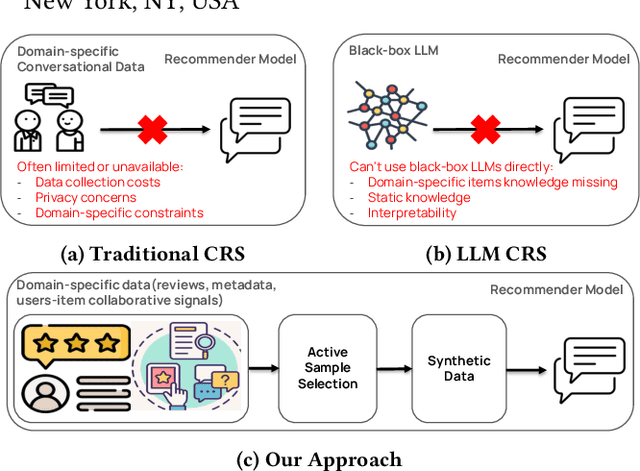
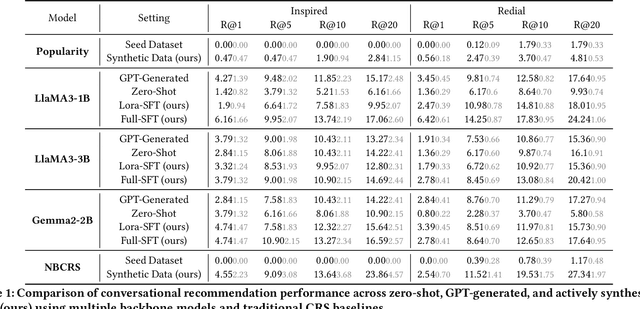

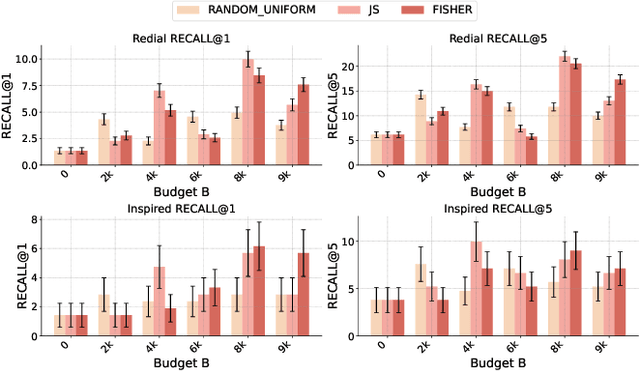
Abstract:Conversational recommender systems (CRS) typically require extensive domain-specific conversational datasets, yet high costs, privacy concerns, and data-collection challenges severely limit their availability. Although Large Language Models (LLMs) demonstrate strong zero-shot recommendation capabilities, practical applications often favor smaller, internally managed recommender models due to scalability, interpretability, and data privacy constraints, especially in sensitive or rapidly evolving domains. However, training these smaller models effectively still demands substantial domain-specific conversational data, which remains challenging to obtain. To address these limitations, we propose an active data augmentation framework that synthesizes conversational training data by leveraging black-box LLMs guided by active learning techniques. Specifically, our method utilizes publicly available non-conversational domain data, including item metadata, user reviews, and collaborative signals, as seed inputs. By employing active learning strategies to select the most informative seed samples, our approach efficiently guides LLMs to generate synthetic, semantically coherent conversational interactions tailored explicitly to the target domain. Extensive experiments validate that conversational data generated by our proposed framework significantly improves the performance of LLM-based CRS models, effectively addressing the challenges of building CRS in no- or low-resource scenarios.
In-context Ranking Preference Optimization
Apr 21, 2025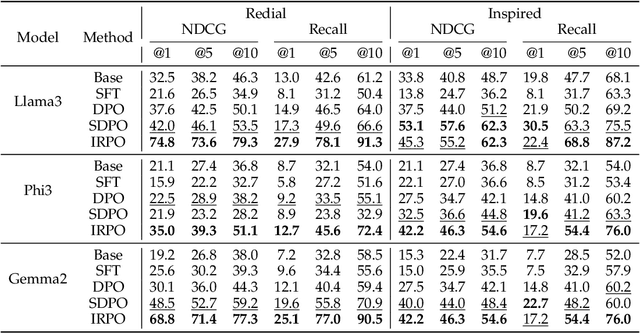
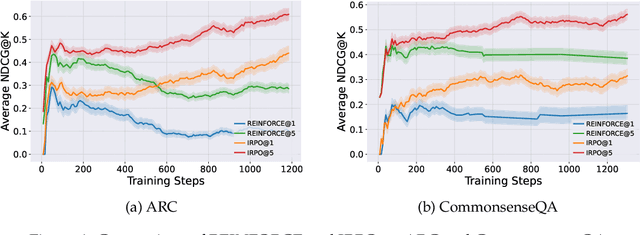
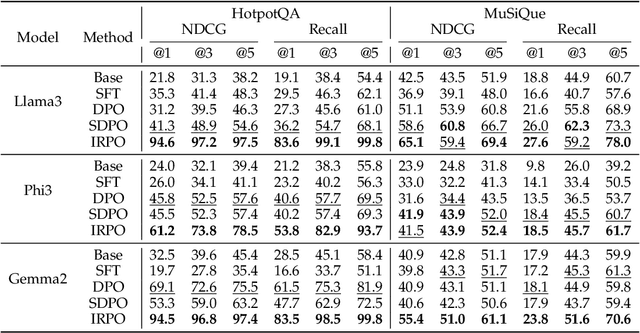
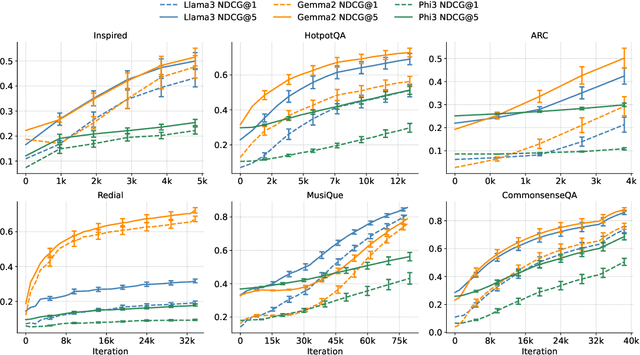
Abstract:Recent developments in Direct Preference Optimization (DPO) allow large language models (LLMs) to function as implicit ranking models by maximizing the margin between preferred and non-preferred responses. In practice, user feedback on such lists typically involves identifying a few relevant items in context rather than providing detailed pairwise comparisons for every possible item pair. Moreover, many complex information retrieval tasks, such as conversational agents and summarization systems, critically depend on ranking the highest-quality outputs at the top, emphasizing the need to support natural and flexible forms of user feedback. To address the challenge of limited and sparse pairwise feedback in the in-context setting, we propose an In-context Ranking Preference Optimization (IRPO) framework that directly optimizes LLMs based on ranking lists constructed during inference. To further capture flexible forms of feedback, IRPO extends the DPO objective by incorporating both the relevance of items and their positions in the list. Modeling these aspects jointly is non-trivial, as ranking metrics are inherently discrete and non-differentiable, making direct optimization difficult. To overcome this, IRPO introduces a differentiable objective based on positional aggregation of pairwise item preferences, enabling effective gradient-based optimization of discrete ranking metrics. We further provide theoretical insights showing that IRPO (i) automatically emphasizes items with greater disagreement between the model and the reference ranking, and (ii) links its gradient to an importance sampling estimator, yielding an unbiased estimator with reduced variance. Empirical results show IRPO outperforms standard DPO approaches in ranking performance, highlighting its effectiveness in aligning LLMs with direct in-context ranking preferences.
 Add to Chrome
Add to Chrome Add to Firefox
Add to Firefox Add to Edge
Add to Edge